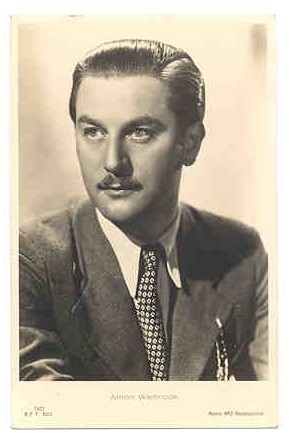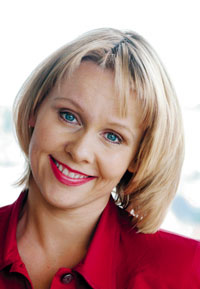Grischun

| |
| Flag of Grischun | |
| Motto: Knowledge is a weapon | |

| |
| Region | Euskalherria |
|---|---|
| Capital | Chur |
| Official Language(s) | Rheto-Romanic, Italian, German, French |
| Leader | Flurin Juvalta, President |
| Population | 2,8 billions |
| Currency | puntsch |
| NS Sunset XML | |
Contents
GEOGRAPHY
Grischun is divided in four main regions. The first 3 are the historical 3 Leagues of Grischun: the Grey League, the Ten-Juridictions League, and the Maisondieu League. The fourth is Valtellina, a former italian region which joined Grischun some centuries later.
Main cities: Chur (capital), Thusis, Vals, Tirano, Sils
HISTORY
The origins
During the 15th century, the territories that would become Grischun were under Austrian-Christian Empire domination, but in the mountains and valleys, 3 men met secretly and promised to kick out the Austrians. They founded the 3 Leagues of Grischun, and swore to defend Liberty and Independance. Soon after, war was declared on Grischun by the Austrians and their ally Spain. There were lots of battles, and tragedies. The people of Grischun eventually won, knowing better than anybody the secrets of their landscapes, launching rapid guerilla-like strikes on the much largest armies of Austrian Empire and Spain. Grischun got independent, by will and by force. Remembering the atrocities committed especially by the very-catholic spanish army, a tradition of anticlericalism and atheism started in Grischun, that would last until now.
The Constitutional Monarchy
For years, Grischun was under a regime of constitutional monarchy. The King Ulysses von Prättigau ruled the country with a lot of wisdom, and was very open to new ideas. He had a lot of respect for the parliament, and those days were times of peace, stability and culture.
In that era, Grischun was set in region Switzerland. After joining the United Nations, Grischun soon became Switzerland's regional delegate. For a time, things went well. However, after a grotesque resolution passed before the assembly of the UN, Grischun decided to quit this organization.
A period of deception and distrust followed, and a colonel of the Grischun army, Augusto Planta, took advantage of the situation and made a putsch against the government. He instored a new regime: the Armed Republic of Grischun.
The Armed Republic of Grischun
The new regime was strongly build on military basis. It change the national motto into "one citizen, one soldier". Since Augusto Planta was a respected commander, the soldiers-citizens did not protest too much against the coup. So the new authoritarian regime grew stronger, not by sympathy, but by apathy of the Grischun population.
The situation in Switzerland became quite problematic, due to the lack of activity. Boredom became every day more evident, so Grischun decided to move to another region. It choosed The Union of Spanish Nations.
Almost immediately after its arrival, Grischun was taken into the turmoil of the region, due to the war conducted by Olmex. After some diplomatic efforts, because Grischun was neutral and desired to stay so, Olmex treacherously attacked Grischun. The answer was not to be waited for, and Grischun quickly counter-attacked, its army being well trained and efficiently equipped. The grischun airplanes proved especially efficient, and some of them were sold to other nations of the region fighting against Olmex within the AN (The Allied Nations).
However, the region was in such a chaos, that when Monogolia created a new region called Euskalherria and invited Grischun to move there, Marshall-President Augusto Planta decided to do so. Soon after, a military satellite called Vuelta 545 was launched in order to defend Grischun and the region, and to prevent any future Olmex aggression. But due to pressions from other nations, especially Prismos and Hesperique, the satellite was removed.
Inside the government, things quickly changed. With Augusto Planta growing quite old, the cabinet got more and more power, especially Pius Tschudi, Minister of Propaganda. If Augusto Planta stayed theorically the leader of Grischun, the real power was in the hands of Pius Tschudi. Fortunat von Salis, a conservative and reasonable person, who was in charge of the Minister of Foreign Affairs, did all he could to prevent clashes with other nations, but the regime slipped more and into a dictatorial and fascist direction under the influence of Pius Tschudi. A diplomatical conflict started as Pius Tschudi threatened and insulted the leaders of Prismos and Hesperique, and the tension grew strong. Inside Grischun, citizens were more and more in opposition with the government, but Tschudi's repression was bloody. A war with Prismos seemed unavoidable, in spite of the calls for peace by the The Allied Nations.
A sight of hope shined in Switzerland, with the creation of Grischun in Exile. Ulysses von Prättigau, with the help of his faithful delegate Werner Curschellas, worked on the future of Grischun, displayed secret diplomatic activity with Prismos, Shao Manchuria and Monogolia in Exile in order to overthrown Pius Tschudi's regime. Inside Grischun, the creation of a pacific resistance network called the Fähnlein gained the population support.
Then, Augusto Planta died in unexplained circumstances, and Pius Tschudi took the power. His extremism and megalomany exploded, and he created the ephemere "Everlasting Imperium of Grischun". But his outrageous political program and cruel methods led to a general rebellion. Fortunat von Salis left the government, a general strike paralyzed the country, the army refused to shoot on the people of Grischun, the Fähnlein marched from the valleys to the capital Chur, and eventually, Pius Tschudi fled. Ulysses von Prättigau came back from exile in triumph, and took the lead of the country until elections could be organized.
The Free Communes of Grischun
In the joy and chaos, Grischun population merrily destroyed the symbols of Tschudi's regime. The Grischun old flag and old motto was restored. Pius Tschudi tried a miserable comeback within Tschudi Island, but he was ejected from the region. Peace was here again. Rebuilding the economy was the priority of Ulysses von Prättigau, since the situation was alarming, with poverty, unemployment being very high.
The situation got quickly better, with the help of the AN nations. Elections could be held in autumn, and Flurin Juvalta, leader of the Fähnlein, won and became president. He formed a coalition with the social-democrats led by Mrs. Solveig Vinzens, prime minister. As he had promised, Ulysses von Prättigau abdicated and put an end to monarchy in Grischun.
Peace and stability came back, and Grischun could at last join the The Allied Nations. Since then, things are going well. Flurin Juvalta's progressist political program helped develop the civil rights, the economy and the political rights. But the conflict between the Trojan People and Pandorapolis might threaten this idyllic picture, since terrorism has struck inside the borders of Grischun.
CULTURE
Culture is strongly respected and honoured in Grischun. Best known Grischun artists are Vreni La Punta (singer), Benito Giacometti-Caviezel (sculptor), VG Brownhat (Writer) and Hermann Nidasch (writer, componist, philosopher).
 Vreni La Punta
Vreni La Punta
 VG Brownhat
VG Brownhat
POLITICS
The results of the last elections were as following:
- Social-Democrat Party (Solveig Vinzens): 26,3%
- Fähnlein Union Party (Flurin Juvalta): 34,8%
- Liberal-Democratic Party (Werner Curschellas): 22,7%
- Conservative Party (Fortunat von Salis) 4,1%
- Ecological Party (Gianluca Esposito): 8,9%
- Spare voices: 3,2 %
A coalition was formed between the Fähnlein Union Party and the Social-Democrat Party. The cabinet consists of these ministers:
- President: Flurin Juvalta (FUP)

- Prime Minister and Minister of Culture: Solveig Vinzens (SDP)

- Minister of Foreign Affairs: Elena Decurtins (FUP)

- Minister of Economy: Christoffel Jenatsch (FUP)

- Minister of Defense: Arnold Maissen (FUP)

- Minister of Interior: Vilem Truog (SDP)

- Minister of Budget: Rudolf Neumann (FUP)

- Minister of Social Affairs: Maria Zanetti (SDP)

- Minister of Environment and Territory: Linus Poltera (SDP)

TRIVIA
Curiously, throughout the history of Grischun, every government respected what could be called the trinity of the Grischa nation: atheism, army, environment.
